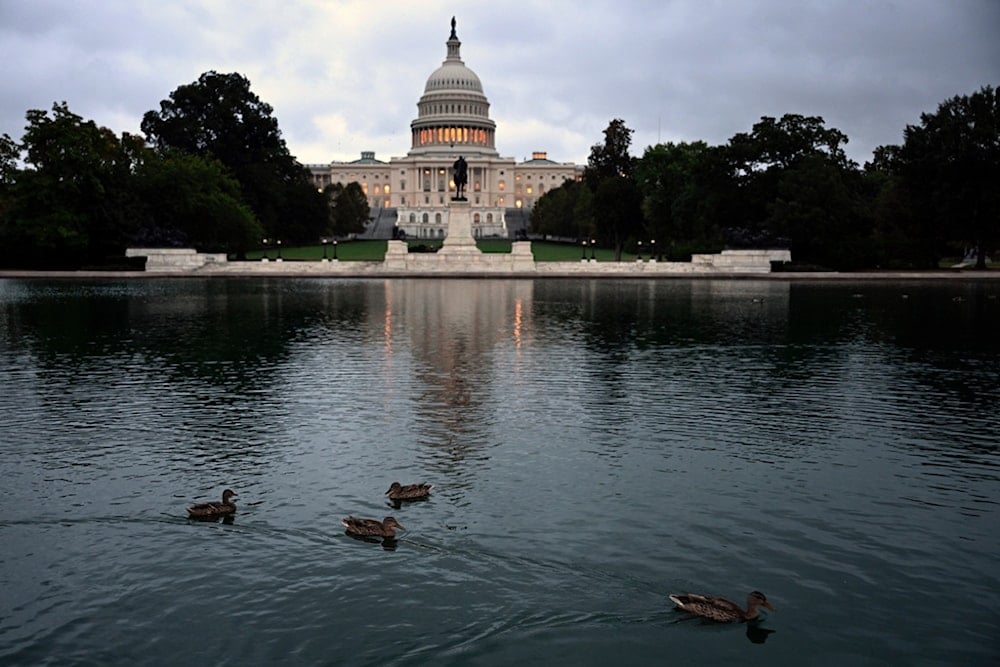US Senate rejects Democratic funding bill amid budget deadlock
The US Senate rejected the Democratic funding bill, with 47 votes in favor and 51 against, marking the sixth failed attempt to pass a 2025 budget plan.
-

Ducks swim at daybreak in the US Capitol Reflecting Pool during the 8th day of the government shutdown on Wednesday, October 8, 2025, in Washington (AP)
The US Senate on Wednesday voted down the government funding bill proposed by the Democratic Party, further deepening the fiscal standoff that has left Washington without an approved budget for the new fiscal year.
According to preliminary results, only 47 senators voted in favor of the measure, while 51 opposed it, falling short of the required 60 votes needed for passage. This marks the sixth failed attempt by Democrats to secure Senate approval for the funding legislation.
The rejection highlights the growing divide in Congress, where partisan gridlock continues to prevent agreement on a budget plan for the 2025 fiscal year.
Fiscal year ended without new budget
The 2024 fiscal year officially ended on September 30, but lawmakers have yet to finalize a spending package to keep the government funded. The prolonged impasse reflects the fierce standoff between Democrats and Republicans in the Senate, where neither side holds a decisive majority.
The failure to reach a compromise raises concerns about potential government shutdowns and disruptions to essential federal operations if no agreement is reached soon.
Observers say the rejection underscores the deep partisan divisions over spending priorities, including social programs, defense allocations, and debt management, with both parties blaming each other for the continued deadlock.
Senate rejects Republican bill to end shutdown
The US Senate last Wednesday rejected a Republican-backed stopgap funding plan aimed at reopening the federal government, prolonging the shutdown that began at midnight. The vote dashed hopes of a quick resolution to the budget deadlock, leaving lawmakers divided over how to end the crisis.
The Republican proposal sought to provide short-term funding to keep federal agencies operating while negotiations continued. However, it failed to secure enough support in the Senate, where Democrats criticized the measure as inadequate and called for a broader bipartisan agreement.
Senate Republican leaders, facing only one defector within their ranks, needed eight Democrats to back the House-passed funding bill in order to break the deadlock.
As the shutdown entered its first full day, nonessential government operations began grinding to a halt across the country. Hundreds of thousands of federal employees have been placed on furlough, leaving them temporarily without pay.
Agencies ranging from national parks to administrative offices have suspended services, while critical operations, including defense, law enforcement, and air traffic control, continue under emergency provisions.

 3 Min Read
3 Min Read










